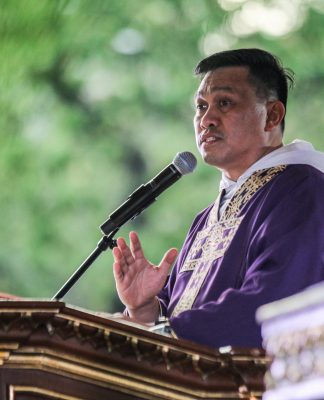THE UNIVERSITY will continue expanding limited face-to-face classes (F2F) to more programs as the country’s pandemic task force placed Metro Manila under Alert Level 1 from March 1-15.
In a memorandum released on March 1, the Office of the Secretary General (OSG) said UST would also resume retrofitting its facilities for the limited F2F classes and continue preparations for off-campus activities such as internships, practicum and fieldwork.
“The expansion of limited F2F classes to more programs shall continue subject to the approval of the University Crisis Management Committee,” UST Secretary General Fr. Louie Coronel, O.P. said.
Health protocols and standards remain for those participating in the limited F2F classes.
Only fully vaccinated students, or those “at least two weeks past receiving the second dose of two-dose vaccine or first dose of a single-dose vaccine,” can join the in-person engagements. They are “strongly encouraged” to get their booster shots for added protection and anticipation of future health protocol requirements.
A seven-day quarantine is required for all students who have traveled internationally and locally outside Metro Manila.
Students who will have their internship at the UST Hospital (USTH) will be required to undergo RT-PCR screening.
The University also maintained its “No Vax Card, No Entry” policy as well as other health protocols like physical distancing and wearing of face masks. Face shields remain optional but are required when visiting the USTH and Health Service.
The memorandum also stated that a gradual transition to full onsite work (from work-from-home and hybrid work arrangements) is “encouraged” to “establish new work systems and practices compatible with improvements in the pandemic situation.”
According to the Inter-Agency Task Force on Emerging Infectious Diseases, all private offices and workplaces “may operate at full 100 percent capacity (consistent with national issuances on vaccination requirements for on-site work)” under Alert Level 1.
However, they may continue to provide flexible and alternative work arrangements as deemed appropriate based on function or individual risk. Justin Benedict T. Lim

















